Unexpectedly, a deep feeling of melancholy arises when leaving Ghana.
The friendly officials at the exit, the four wonderful ladies at passport control who constantly joke with each other, flirt with the happily laughing guy in the next cubicle and wave me through without checking me. Bye bye. God bless you.
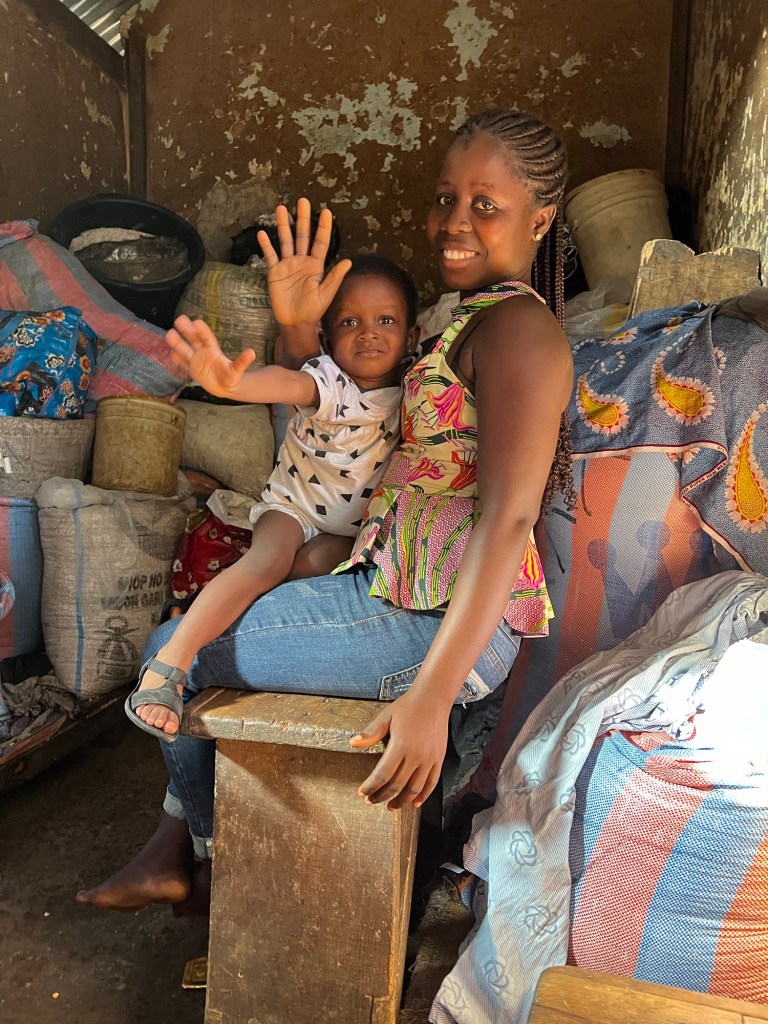
Sometimes it is only in retrospect, through sadness, that you realise how deeply something touched you, how beautiful it was; in short, that you fell in love.
On the last evening, the hospital gave me a big farewell party under my mango tree. Everyone was there, there were speeches and dancing. This time we made the noise. They can dance so well – I wanted to learn right away, but had to give up after the first few sessions. You don’t learn that. Reverend Derick explained: it’s not the rhythm of Ghana, it’s the rhythm of Africa that moves with them. Agnes, the nurse in the operating theatre, dances next to me with her son „Baby Kofi“ on her back. That’s how it works: dance on your mother’s back and you’ll always have the rhythm in you, in your soul.

It’s a big goodbye, I won’t sleep that night.
A final colonoscopy on the day of my departure. The collaboration is smooth and completely routine. No singing today.
Alexander, the driver, takes me to Elmina, on the coast west of Accra. Five hours on bad roads won’t be long, there are so many impressive sights along the way. In the cool car you quickly forget how warm it is outside. But you’ll soon remember if you take a short break. 34 degrees, direct sun, dust, bad air. Get on with it.
Sister Ruth has contacted „Uncle“, Mr Blankson, who will be accompanying me for the next two days. He works as a guide in the slave castles of Cape Coast and Elimina, researches the history of slavery and is a writer. He proudly shows me a photo of himself with President Obama, whom he guided through Elimina Castle.
„Uncle“ is Ruth’s father.

Perhaps the severity of my melancholy also has something to do with what I experience in the slave castles. 350 years of slavery, 12 million or more, at least a third of whom died in the most horrible conditions. Wretched dungeons where up to 600 slaves were kept in a very small space. After an average of three months in these dungeons, they were suddenly taken away in chains at night. They were loaded onto boats through a narrow hole, a „gate of no return“, and transported to Brazil, the Caribbean and the USA.
They suffered so much. The soldiers took such pleasure in torturing them.
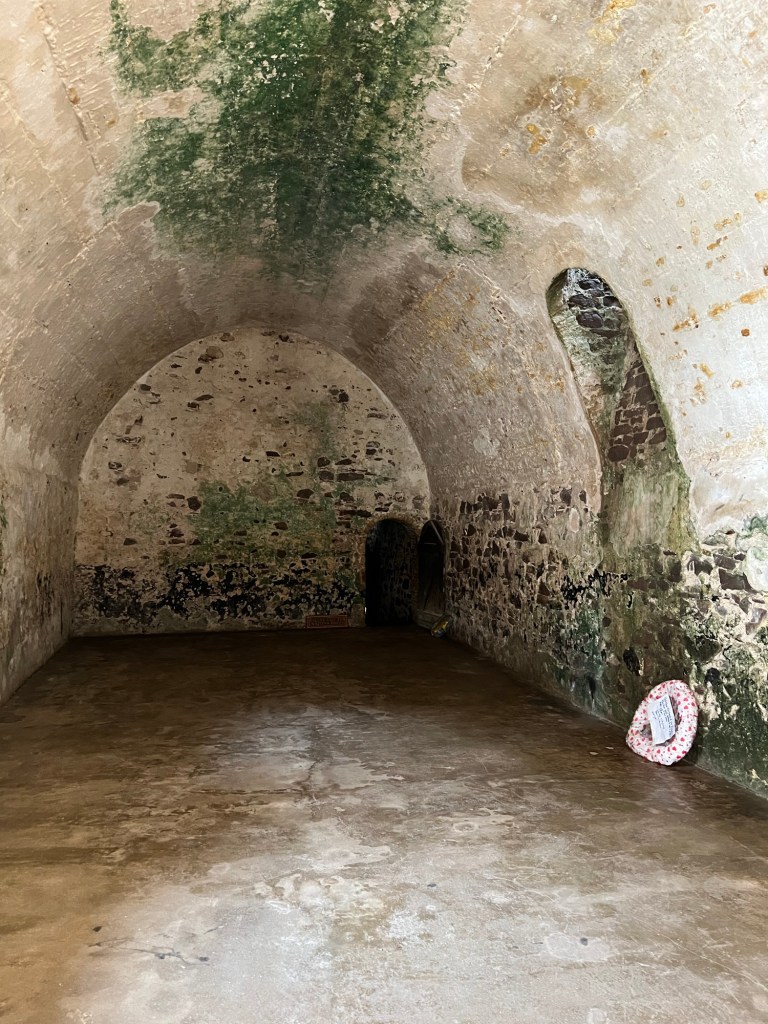
We are standing on the first floor of the church. There is a small school. The captured pregnant slaves had their children taken away after birth. One in three survived and was brought up in the castle’s orphanage. They were taught to pray and sing Christian songs. There is a spot outside the children’s school where you can look down a deep shaft into the dark men’s prison. They screamed in their misery, in their hopelessness and torment, and up there the little orphans had to sing pious songs. There, between the screams of the slaves and the songs of the children, the captain of a slave ship, John Newton, suddenly heard a melody. The Amazing Grace. He played it only on the black keys.
My guide, Uncle, takes his time, locking me in dark cells where rebellious slaves were locked to their deaths, without light or water.
President Obama was reminded of Auschwitz during the tour.
It’s so heavy, so dark, so shocking. Hard to bear. For 350 years. Millions of deportations, the largest in human history.
To this day, the British have not come to terms with their part and have never apologised. Not even the Queen.
No more details. One more. We are in the church. Its exit leads to a balustrade that surrounds the entire courtyard. The women’s „dungeons“ were there. After the service, the slaves were herded into the courtyard. The soldiers and merchants gathered on the balcony and were allowed to choose the women who were then taken to their rooms. They had been washed beforehand, as they were kept in the most horrible conditions, smelling of excrement and sweat. They were panicked, torn from their families, taken away from their children and sent back to the misery of childbirth.

In the Colonial Church there is a sign with lines from Psalm 132:
“I will not enter my tent / nor lie down in peace
Do not grant sleep to your eyes / nor slumber to your eyelids
Until I find a place for the Lord, a dwelling place for the mighty God.“

They come out of this apartment, in the basement they make the lives of the „soulless“ hell, driving them out and raping them. As if under a magnifying glass, we see here the greatest deficit and the most astonishing „ability“ of homo sapiens. His ability to step out of reality, to dissociate himself from it, to turn off his compassion. Because something that is called pleasure, but never makes you happy, doesn’t create peace. Step out of reality, give up your presence in favour of castles in the sky. But these castles in the air burn down. Uncle tells me the story of some commanders and their families, they weren’t happy. Thanks to research, we know the names of the perpetrators, but not those of the victims, because they had no names and the lists with the numbers made them disappear.

Slavery still has an impact today. These are places of remembrance, there are wreaths and altars, and people whose families were affected by the crimes continue come here.

In the evening I go to the beach. Swimming in the Atlantic Ocean, just like 45 years ago. Sunset, palm trees, the endless ocean that stretches from here to Antarctica, thunderous waves. Everything as I remembered it.

Miles of sandy beaches, long boats on the water. Where the water breaks and flows back into the waves, where you would expect mussels and seagulls looking for crabs, there are now endless plastic benches. It’s incredibly sad. It won’t disappear in a hundred years, and it’s just the tip of the iceberg of the real disaster, the huge swirls of plastic waste in the ocean, which are said to be the size of entire continents. The garbage gathers near the equator, where different ocean currents from the north and south meet.
In the ocean, just off Ghana, the prime meridian, the Greenwich meridian, cuts the equator. This is the geographical centre of the earth, i.e. superficially. Just a point in the plastic vortex.
The clean-up in the hospital is nothing, my little play is nothing and the musical is nothing: no more plastic! The amount of waste is overwhelming and uncontrollable. We cannot seriously leave this to future generations.
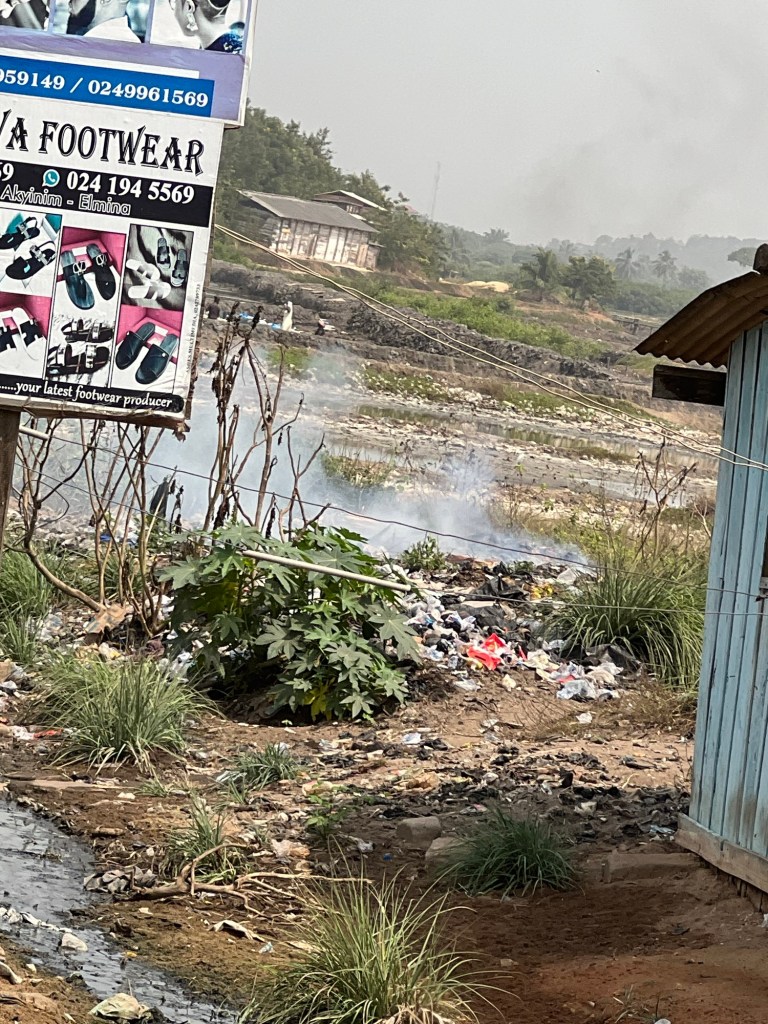
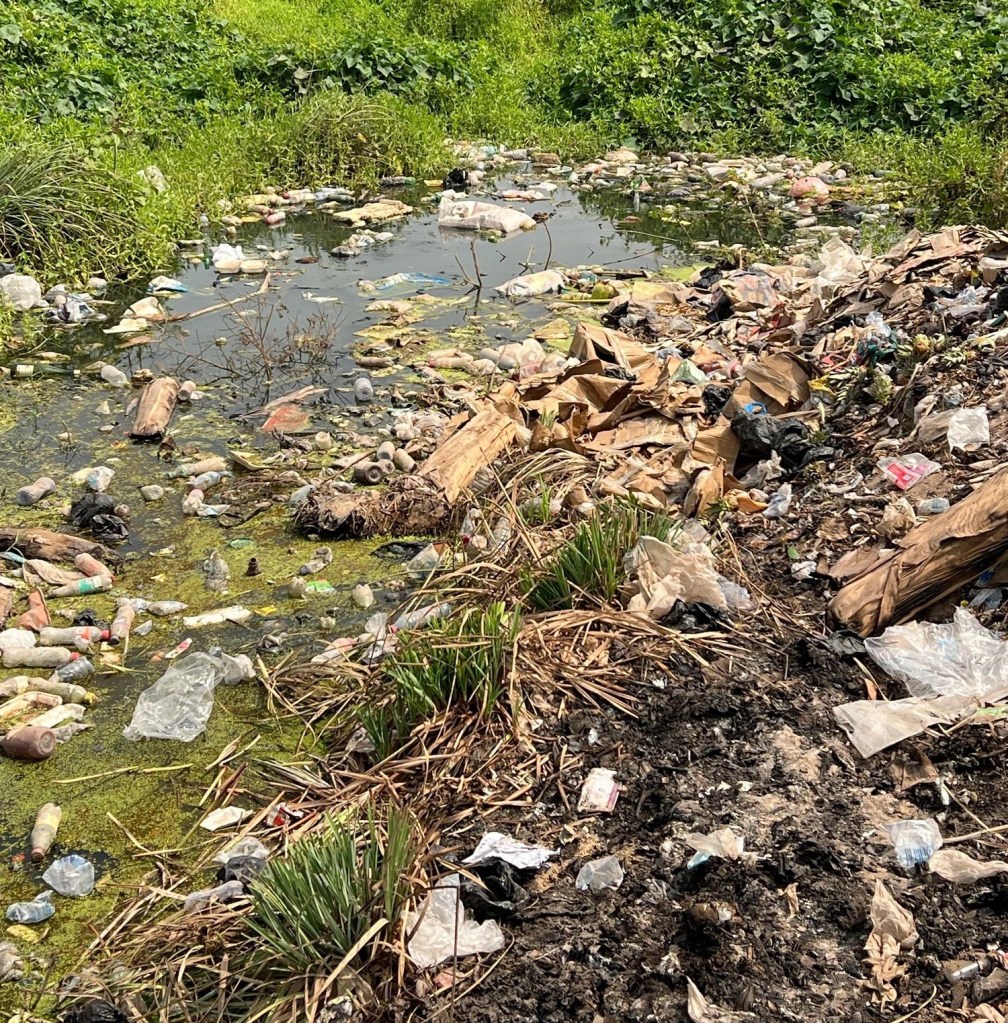
45 years ago there was no plastic here. I know that for sure. The demand is that all of this disappears again. It’s man-made in less than 45 years, so we can get rid of it again. End plastic soup!
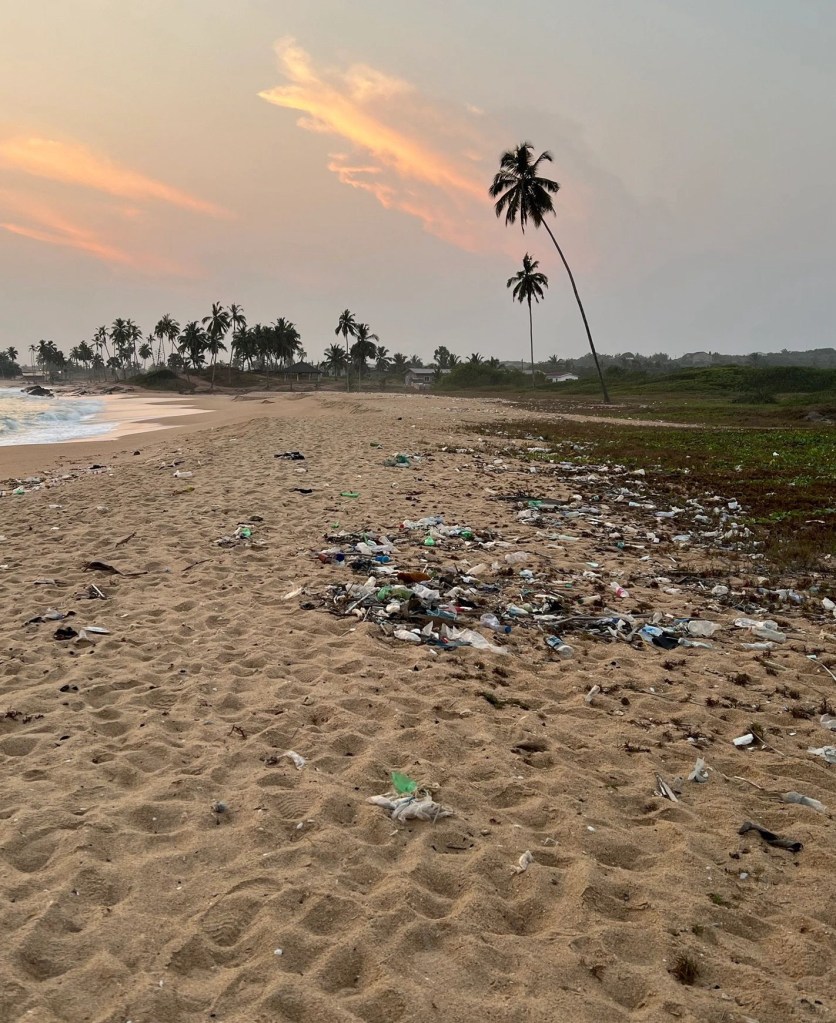
The next day we drive to the Kakum National Park. This is a tiny remnant of the once vast rainforest, in an area the size of Berlin. Not any more. Now climate change is causing problems, a lack of rain and increasing heat. There are around 340 forest elephants left in the park. They can no longer migrate and their genes remain isolated. Extinction is guaranteed.
So it’s melancholy plus world-weariness that accompanies me as I leave. We drive through small villages, colourful markets and thousands of wonderful people into the huge city of Accra.
Life in Ghana and especially in the capital is incredibly intense, immediate and fascinating.

“As I walk, I ride the buffalo” is the koan my Zen teacher gave me for this part of the journey. Walk in silence, step by step, each moment focused on nothing other than this one step. The disturbingly beautiful and unspeakably terrible life at the end of the Anthropocene takes you away.

Pictures taken.

Hinterlasse einen Kommentar